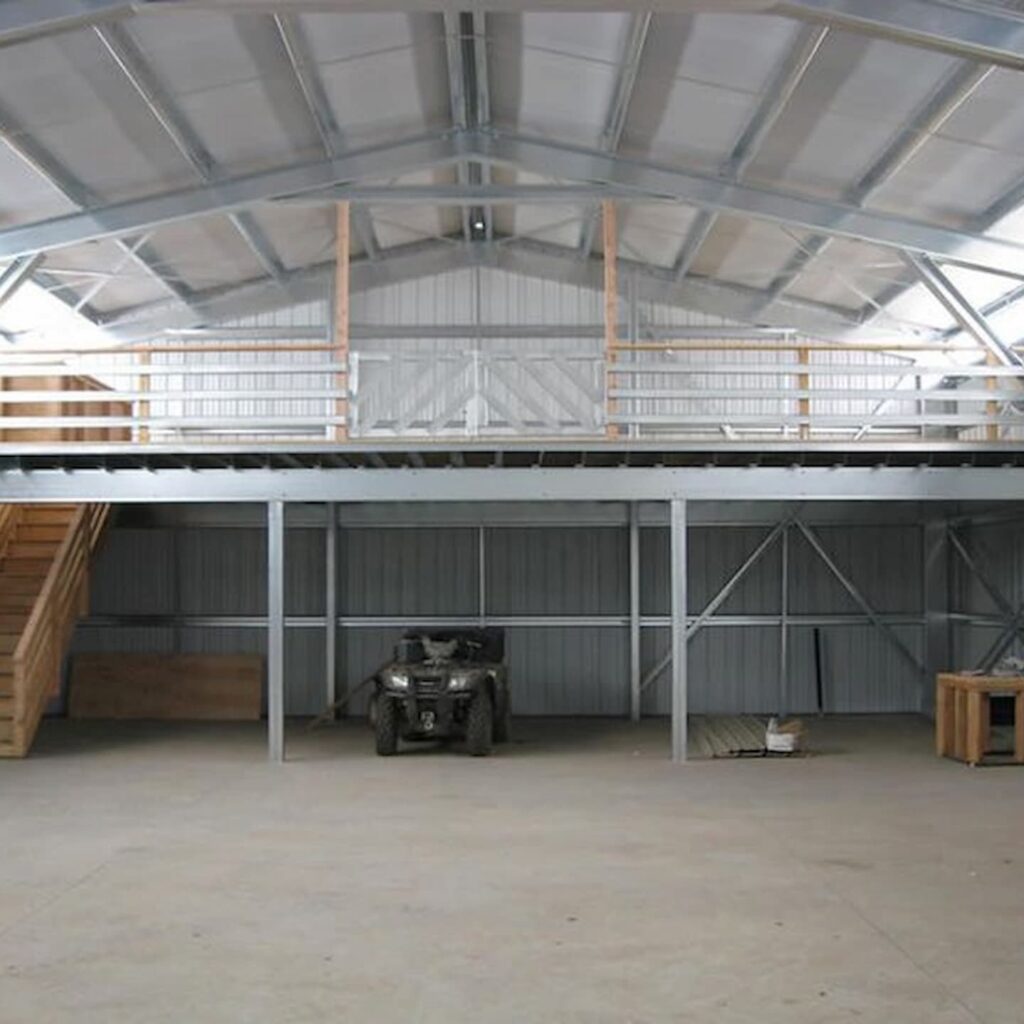Where do you keep your workshop? First, of course, it’s best to set it up in a place where noise and dust aren’t an issue. However, there are other ruminations you need to keep in mind, like humidity, light, and ventilation. Moreover, all these considerations are essential, but one consideration should be your top priority when planning a metal workshop at your home – the space where you want to build your metal workshop. You can choose to build it in your backyard, with your garage, basement, or outbuilding.
Let’s see the 10 things you need to consider when building a metal workshop at home.
Select the suitable space
The initial thing you need to look for is a perfect space or location to build your home workshop. However, you need to be precise with the type of work you are planning to do in your workshop. Is it metalwork or woodwork? Plan the area according to the requirements of your work. For example, you might have a garage, shed, or summer house you wish to convert into a workshop. Places you can go are the backyard, empty gardens, basements of your home; just be careful with nature and try not to harm any plant while planning.
Permit
It is advisable that you must check with your local council planning office regarding the permission. Over time, rules can also change; for example, if your home is in a conservation area, you will need approval before planning.
Some general guidelines that you must follow are that your workshop must not take up more than half of your garden space. It requires to be more than 1 meter away from the perimeter of your property. If your planned Metal Workshops do not meet the requirements, you need to reconsider your design. It’s the key to make sure you look into every detail of the legal requirements to ensure a dream new workshop doesn’t cost you trouble.
Heating, Cooling, and Insulation
If you plan to use your workshop without depending on the seasons all around the year, it would be great to insulate your metal workshop well. Consider the valuable heat source for cool weather and possibly a window air conditioning system for the days of summer. Traditional roofing material can heat up more, so choose wisely your roof material to help you pass the hot summer days and the windy, cold storm and rains.
Electrical Supplies and Plumbing
Electrical and plumbing connections give an accessible and enjoyable workshop life. Consider a wash station or bathroom with a sink, so you don’t have to trail your paintbrushes marks or oil-covered hands into your clean house. Plenty of dedicated extension boards for lighting and a set of power tools is a must. A well-planned workshop outlet will serve you well. Finally, don’t forget to run electrical connections to anything you will hardwire into your shop. Cover the wire well, and don’t leave any open-wire or loose end for future incidents.
Adequate Lightings
A well-light source for your workshop is safe and usable. You can add multiple windows considering the weather conditions for natural light to plenty of overhead lights. According to the internal workshop workspace, different lights must lighten up well. Then, run the proper electrical connections to check the required light. Next, add window accessories and consider both ceiling and over-counter lighting for your workbenches.
Storage
When designing your workshop, keep in mind that you need to create the space according to your tools and have easy access. Ensure you have shelves and storage for paints, oils, chemicals, and storage for your tools. If you want your devices to be easily seeable, you can add a pegboard or moveable toolbox. Also, you can add tool storage towers that can double as extra counter space, which is an excellent idea. Tuck them under your workbench when not in use.
Space on your floor
Whether you create a foundation or a concrete slab, a sturdy level and a well-maintained floor are must-haves for the proper workshop. Add any plumbing or drains on your floor that is required. Ensure to plan enough floor space for all of your large equipment. Also, design your floor large enough so that rollable equipment and tools are movable with ease.
Don’t forget to paint
If you are converting your garage or shed into a workshop, Don’t forget to paint it, it will give a new look to admire your old space.
Choose an adequate and decent color for your workshop, and make sure some colors absorb heat, so plan according to your area’s weather. Mostly a mixture of light and bright colors goes well. Don’t hesitate to experiment; after all, it’s your art area.
Exhaust Fan
We know that we talked about proper ventilation, but adding an exhaust fan to your metal workshop can benefit you a lot. Windows and doors are okay to keep the ventilation process going; however, it generates heat in your workshop when you weld anything. The exhaust fan can ease the ventilation process and also helps to balance the temperature of your metal workshop.
Safety
The most important thing you need to consider is your safety; always keep a pair of boots and gloves handy in your workshop. Always emphasize wearing them when you start working; your safety should be the top-notch priority. Also, keep your fire-resistant eyeglass handy when you plan to work on welding things.
Don’t forget to keep the first aid box in your workshop and try to keep your pointed tools in a box where they cannot hurt you while working.
